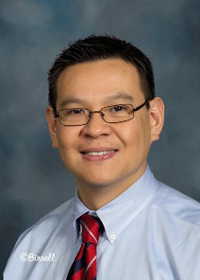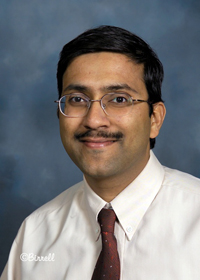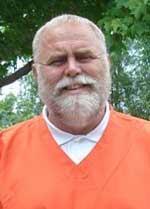 |
Fausto Loberiza, M.D. |
 |
Apar Ganti, M.D. |
 |
Stephanie Lee, M.D. |
It’s estimated less than one in 10 Americans have completed advance care planning. Even in the setting of incurable diseases, in which death is anticipated, planning is relatively rare and occurs in about one-quarter of the patients.
Researchers from UNMC and the Fred Hutchinson Cancer Research Center in Seattle, found only half of patients undergoing stem cell transplantation had engaged in advance care planning. They found something more surprising — patients without advance care planning before stem cell transplants were almost three times more likely to die during or after the transplant than those who had ACP.
The purpose of the study, which was published in the today’s issue of the Journal of Clinical Oncology, was to show that talking about ACP does not impact patient outcomes.
“We thought our study would show there was no difference in survival whether there was an advance care plan or not, but that was not the case” said Fausto Loberiza, Jr., M.D., associate professor UNMC and senior author of the paper. “We wanted to be able to show that advance care planning doesn’t affect outcomes so it’s okay to talk about it.”
But the study actually demonstrated that lack of engagement in ACP is associated with adverse outcomes following stem cell transplantation, said Apar Ganti, M.D., UNMC assistant professor and first author of the study.
“Patients least likely to engage in ACP are the ones most likely to face poor outcomes and are most likely to need advance care planning,” Dr. Ganti said.
Physicians and patients are often uncomfortable talking about ACP for various reasons including a fear that discussing bad outcomes could cause adverse effects for patients.
The one-year study evaluated 343 patients older than 19 who underwent stem cell transplantation between 2001 and 2003 at UNMC’s hospital partner, The Nebraska Medical Center, for cancers of the blood such as leukemia, lymphoma, multiple myeloma and myelodysplastic syndrome. Of the 343 patients, 172 did not have advance care planning.
Stem cell transplantation is an aggressive, high-risk and potentially life-saving procedure for certain cancers. Average one year survival rate ranges from 55 to 95 percent. About 100,000 to 200,000 people undergo stem cell transplants each year.
|
“We want to be very clear that we do not feel this is the reason for poor outcomes. We do not know the nature of the relationship between having ACP and outcomes,” Dr. Ganti said.
Researchers said the need for advance care planning is great, especially before transplantation while the patient is competent. Benefits include autonomy in decision-making, congruence between personal values and end-of-life actions, decreased burden on family and health care providers as wishes are known, and possible decrease in costs.
Decisions such as when to stop treatment and focus on palliative care also are common concerns of cancer patients.
“We should all be talking about these issues, not just patients with cancer or those about to undergo a transplant,” said Stephanie Lee, M.D., associate member of the Fred Hutchinson Cancer Research Center and one of the paper’s authors. “Preparing for the possibility of one’s premature death is relevant for everyone. Advance care planning also addresses how the family will be financially supported, who will be the children’s guardian, and communicates your personal philosophies about life and death so your family can speak for you if you can’t.
“What is important is that you talk about these issues before a crisis happens. I can’t tell you how many times I’ve heard families say, ‘We never discussed the possibility that something like this would happen,’ ” Dr. Lee said.

|
|
“Maybe people who have plans are more health conscious or maybe more likely to promote things for good health, although this is not proven,” he said.
Researchers said though social workers commonly engage in ACP discussions at health care centers, physicians are among the best advocates for instituting change in the clinical care setting, so it’s important they’re active advocates of ACP.
“Physicians are not trained in a structured way to talk to patients about death and dying,” Dr. Loberiza said.
For Bill Jurgens, 54, doing advance care planning was part of dealing with cancer. April 15, 2005, was the beginning of his struggle with treatments, surgeries, complications and then relapse. In October 2006, he had a stem cell transplant and was again given a 40 percent chance of survival.
“It made sense to plan. You can’t deny what might possibly happen to you. You can’t do that to your family,” Jurgens said. “If they know my wishes, it makes it less difficult for them.”
Researchers are planning a follow-up study to help provide insight into the issue, as well as develop an effective intervention to increase engagement in ACP.
Other authors of the study were UNMC oncologists, Julie Vose, M.D., Marcel Devetten, M.D., R. Gregory Bociek, M.D., James Armitage, M.D., Philip Bierman, M.D., Lori Maness, M.D., and Elizabeth Reed, M.D.